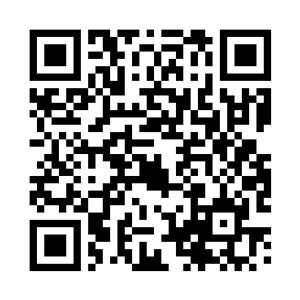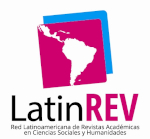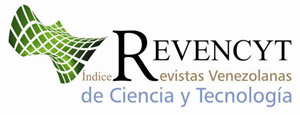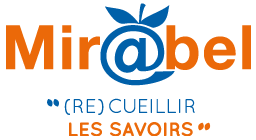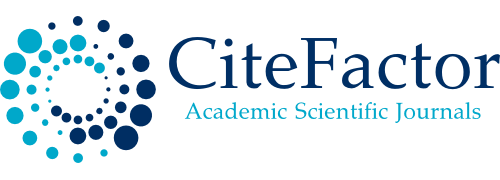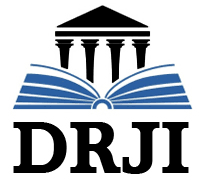University education: text, discourse and context text
Keywords:
university, text, discourse, contextAbstract
The purpose of this article is to analyze university education as a text, discourse and context, assumed as a space that transcends the fact of being a physical structure or place where one is going to learn to obtain a degree. It is something with a higher sense and meaning than that, which gives it a role of co-responsibility before the environments (prosocial awareness) because it is, according to the law, a community of human interests, where teachers and students converge, among other subjects, with the primary task of seeking progress in the personal as well as in the community – the planetary or systemic –. Four main categories emerge from this qualitative documentary study: university, text, discourse, context. These, in turn, led to the goal of analyzing their meaning and significance with derived subcategories: teaching performance (professional deontology), biopsychosocial characteristics of students (archetypes), and co-responsibility for the environment (prosocial awareness). From there, it can be inferred that the ethical practice of a professional in any labor system branch is a reflection of the training received, to a certain degree; this does not annul the fact that there is also a degree of personal responsibility based on the social learning that he has accumulated throughout his life. So, there is a range of convergent aspects, starting with training (as an educational fact) and, with it the performance of the university teacher as well as the biopsychosocial characteristics of the student - with their consequent archetypes - who pursue learning.
Downloads
References
Amador, S. (2004). La representación social de la tecnología en mujeres rurales: los procesos sociocognitivos como fundamento de la relevancia social. [Tesis de maestría, Universidad de las Américas Puebla]. http://catarina.udlap.mx/u_dl_a/tales/documentos/mce/amador_p_se/capitulo_4.html#
Arias, F. (2012). El proyecto de investigación. Caracas: Episteme.
Aristóteles (1988). Política. Introducción, Traducción y Notas de Manuela García Valdés. Madrid: Editorial Gredos.
Bandura, A. (1982). Teoría del aprendizaje social. Madrid, España: Editorial Espasa Calpe S.A.
Barbabosa, R. (2021). La teoría del aprendizaje social de Albert Bandura. Boletín Neuropsicología. APA. Universidad Nacional Autónoma de México. https://www.researchgate.net/publication/353391164_La_Teoria_del_Aprendizaje_Social_de_Albert_Bandura
Berger, P. y Luckmann, T. (1967). La construcción social de la realidad. Buenos Aires: Amorrortu.
Calderón, A. (1969). Antropología social. México: Editorial Oasis.
Constitución de la República Bolivariana de Venezuela (2000). Gaceta Oficial de la República de Venezuela, 5.453 (Extraordinario), 24 de marzo del 2000.
Erikson, E. (2000). El ciclo vital completado. Barcelona: Ediciones Paidós Ibérica.
Fernández, P. (1994). La psicología colectiva. Un fin de siglo más tarde. Su disciplina, su conocimiento, su realidad. Barcelona: Anthropos.
Freire, P. (1971). Pedagogía del oprimido. Argentina: Siglo XXI.
Galimberti, U. (2002) Diccionario de psicología. México: Siglo XXI.
García, M. (2013). George Herbert Mead: sobre el gesto como inicio de la interacción social y el desarrollo de las interacciones sociales saludables. Educación y Salud Boletín Científico de Ciencias de la Salud Universidad Autónoma del estado de Hidalgo. 2(3). https://www.uaeh.edu.mx/scige/boletin/icsa/n3/e1.html
González, L. (2021). Indización Documental. Bibliopos. https://www.bibliopos.es/indizacion-documental
Gurin, P., Gurin, G., Lao, R. C. y Beattie, M. (1969). Internal-external control in the motivacional dynamics of Negro youth. Journal of Social Issues. 25(3), 29-53. https://spssi.onlinelibrary.wiley.com/doi/epdf/10.1111/j.1540-4560.1969.tb00605.x
Jodelet, D. (1984). La representación social: fenómeno, concepto y teoría. Barcelona: Paidós.
Jung, C. (1970). Arquetipos e inconsciente colectivo. Barcelona: Paidós.
Kelly, G. (1955). The Psychology of Personal Constructs. Nueva York: Norton.
Kohlberg, L. (1991). Psicología del desarrollo moral. Bilbao: Editora Desclée De Brouwer.
Lewin, K. (1988). Teoría del campo en la ciencia social. España: Ediciones Paidós.
Ley de Universidades. (8 de septiembre de 1970). Gaceta Oficial Extraordinario de la República de Venezuela, 1429.
Ley Orgánica de Educación (15 de agosto de 2009). Gaceta Oficial Extraordinario de la República Bolivariana de Venezuela, 5929.
Luhmann, N. (1998). Sistemas sociales. Lineamientos para una teoría general. Barcelona: Anthropos.
Maier, H. (1971). Tres Teorías sobre el desarrollo del niño: Erickson, Piaget y Sears. España: Amorrortu Editores.
Martorell, C., González, R., Ordóñez, A. y Gómez, O. (2011). Estudio Confirmatorio del Cuestionario de Conducta Prosocial (Ccp) y su Relación con Variables de Personalidad y Socialización. Revista Iberoamericana de Diagnóstico y Evaluación - e Avaliação Psicológica. 2(32), 35-52. https://www.redalyc.org/pdf/4596/459645440003.pdf
Morin, E. (1984). Ciencia con conciencia. Barcelona: Anthropos.
Morin, E. y Kern, A. (1993). Tierra patria. Buenos Aires: Ediciones Nueva visión.
Morin, E. (1999). La cabeza bien puesta. Repensar la reforma, reformar el pensamiento. Nueva Visión. España.
Morin, E. y Le Moigne, J. (2006). Inteligencia de la complejidad. Epistemología y pragmática. Cerisy, Francia. Ediciones d’ l uaube.
Moscovici, S. (1979). El psicoanálisis, su imagen y su público. Argentina: Editorial Huemul.
Navarrete, Z. (2013). La universidad como espacio de Formación profesional y constructora de identidades Universidades, (57), 5-16. https://www.redalyc.org/pdf/373/37331246003.pdf
Panikkar, R. (2006). Paz e Interculturalidad. Una reflexión filosófica. Barcelona: Herder.
Pardo, N. (2011). Análisis crítico del discurso: conceptualización y desarrollo. Cuadernos de Lingüística Hispánica, (19), 41-62. https://revistas.uptc.edu.co/index.php/linguistica_hispanica/article/view/447/447.
Pastor, J., Aldas, J., Goerlich, F., Pérez, P., Serrano, L., Catalán, A., Soler, A. y Zaera, I. (2019). Informe SUE 2018 La Contribución Socioeconómica de Sistema Universitario Español. Workcenter SGD, S.A. https://www.crue.org/wp-content/uploads/2020/02/La-contribuci%C3%B3n-socioeconomica-del-sistema-universitario-espa%C3%B1ol-WEB.pdf
Pichon-Riviére, E. (1985). Teoría del vínculo. Argentina: ediciones Nueva Visión SAIC.
Piñuel, J. (2002). Epistemología, metodología y técnicas del análisis de contenido. Estudios de sociolingüística. 3(1), 1-42. https://www.ucm.es/data/cont/docs/268-2013-07-29-Pinuel_Raigada_AnalisisContenido_2002_EstudiosSociolinguisticaUVigo.pdf.
Rastier, F. (2008). C.N.R.S. Discurso y Texto. Literatura y lingüística. (19), 295-300 https://www.redalyc.org/articulo.oa?id=35214446017.
Rawls, J. (1996). Political Liberalism. New York: Columbia University Press.
Real Academia Española (2022). Universidad. En Diccionario de la lengua española. https://dle.rae.es/universidad?m=form.
Rotter, J. B. (1975). Some problems and misconceptions related to the construct of internal versus external control of reinforcement. Journal of Consulting and Clinical Psychology, 43(1), 56-57. https://psycnet.apa.org/record/1975-11748-001
UNESCO (2009). La UNESCO y la Educación. https://unesdoc.unesco.org/ark:/48223/pf0000184967_spa.
UNESCO (2020). Informe Mundial sobre el desarrollo de los recursos hídricos. https://es.unesco.org/themes/water-security/wwap/wwdr/2020.
UNESCO (2021). Pensar más allá de los límites: Perspectivas sobre el futuro de la educación superior para 2050. https://www.iesalc.unesco.org/2021/05/08/lanzamiento-del-informe-pensar-mas-alla-de-los-limites-perspectivas-sobre-los-futuros-de-la-educacion-superior-hasta-2050/
UNESCO (2021). Futuros de la educación Superior. Consulta pública. https://www.iesalc.unesco.org/los-futuros-de-la-educacion-superior/caminos-hacia-2050-y-mas-alla/
UNESCO-GEM (2021). Informe de Seguimiento de la Educación en el Mundo 2021. https://gem-report-2021.unesco.org/es/seguimiento/
Published
How to Cite
Issue
Section
License

This work is licensed under a Creative Commons Attribution-NonCommercial-ShareAlike 4.0 International License.





